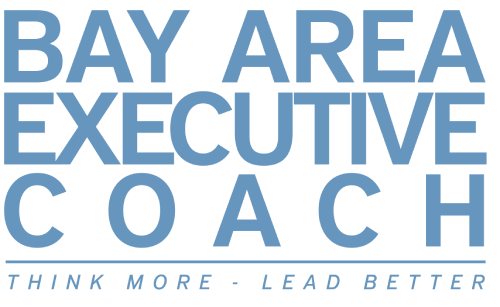It’s said that great leaders are made, not born, and that’s probably truer today than ever with the myriad challenges facing our world. So, what are the skills a savvy business executive needs most to thrive in our day and age? Here’s a list of the 8 top leadership skills for 2023, as determined by a number of different researchers:
1 – Relationship Building with Colleagues and Reports
To build cohesive and more engaged teams, great leaders need to forge strong working relationships with their employees. Leaders with strong, trusting, and authentic relationships with their teams realize that building such bonds makes them more effective as leaders. Also, every strong relationship a leader cultivates works to help the team perform at their highest level and full potential.
This is even more important to intentionally address in a hybrid world where random connection rarely happens.
Pro tip: Don’t just fill your calendar with meetings and work blocks. Insert connection blocks and turn to a list of people you need to develop stronger relationships with to determine who to reach out to on any given day when the time arises.
2 – Ability and Agility to Deal with Change in a Positive Way
Change is inevitable in life, and in business, and the skills needed to adapt to change are of prime importance to leaders in 2023. Survey after survey of necessary leadership traits for success in a new world bear this out.
Effective leaders must be able to adapt quickly and decisively to both internal and external changes. Leaders should therefore develop a lifelong learning mentality that ensures they’re not left behind by emerging trends or technologies. The more a leader can accept, plan for, and adapt to change, the better that person will be at leading.
Pro tip: Look back on the past 12 months. Which changes did you resist most strongly? Why? What can you learn about yourself and your willingness to change when different types of internal and external shifts present themselves?
Read another article on our blog related to tolerance for ambiguity and adaptability.
3 – Creativity and Innovative Thinking
In a highly competitive world, creative thinking has become a must for many successful leaders. Innovative thinking leads to innovative companies, and those are the companies most likely to stand apart from their competition and win in the marketplace. Creativity and innovation will continue to be in-demand skills for executives in 2023.

What if you don’t feel as if you are creative and innovative? One option is to increase your ability to think creatively by taking courses, reading books and opening up to a greater understanding of what creativity looks like in your role. A great book to start with is “A Whole New Mind” by Dan Pink.
Another option is to tap into the creative thinking of your team. You likely have someone on your team at any given time who has thoughts to share about ways to innovate or creatively solve a problem facing you or your company. Ask regularly for the thoughts and opinions of those you lead and work with.
Pro tip: Increasing the conversational intelligence of your team can bring about more innovative ideas. When people are able to have what we call Level III conversations, they are more likely to think out of the box in whole new ways. Want to learn more about conversational intelligence?
4 – Engaging and Motivating Employees
As with relationship building, engaging and motivating employees to do their best work is an important skill for leaders to embrace and apply. Knowing how to continuously motivate employees requires leaders to be closely connected to their teams and attentive to the team’s functioning. Motivation also engenders high morale, a critical element for any team’s ongoing success. When employees are not motivated and morale is low, a company can be negatively affected with absenteeism, attrition, and low productivity.
There are many ways to engage team members, but very few can occur before the leader takes the time to build a relationship with each team member one on one. Through these one on ones that are more than just talking about projects and tasks, leaders can learn what type of work thoroughly engages the employee, what type of work they loathe, what type of work would they like to do but aren’t capable of doing yet, what types of rewards do they most appreciate, where do they want to go next in their career and lastly, how can the leader be a more effective manager to them.
When the leader goes this far to get to know their team members, it shows how committed they are to employee engagement and growth within the organization. This is half the battle.
Pro tip: Are you doing team building events with your team at least once a year? This is a clear signal to team members that they are valued, worth investing in, and should be growing together as a team. One of our favorite programs is Five Behaviors based on “The Five Dysfunctions of a Team” by Patrick Lencioni. Connect with us to learn more and about other programs we can deliver for your team.
5 – Prudent Decision Making 
Leaders are often judged by the decisions they make. Effective leaders have highly refined decision-making skills rooted in reality and sound judgment. Making decisions, however big or small, are a fundamental part of leadership, and a good leader possesses strong decision-making skills with the conviction to stand by their decisions. And this especially applies when making difficult and unpopular decisions. Strong leaders recognize that long-term success sometimes means enduring short term adversity.
In the recently released book, “The CEO Next Door”, authors Botelho, Powell and Raz identified three traits in effective CEOS. The first one was “decide faster”. So, it’s not just deciding, but it’s also about getting to it now. Not tomorrow. Not next week. Now.
Pro tip: Leaders we’ve worked with who tend to decide more slowly want more data, want to talk with more people, or simply take more time to think. Becoming more self-aware of the desire for more of something when it comes to making decisions is the first step towards uncovering new ways to move forward and decide more quickly and with conviction. Take time to reflect on your process and ask yourself, “How can I do this more quickly?”
6 – Effective Conflict Management
Few leaders actually appreciate conflict, but it’s a regular occurrence in the lives of today’s leaders leading in a VUCA world. When a conflict arises, an effective leader leans into it and resolves it before it affects the business negatively. When properly dealt with, a conflict may even turn out to be positive for an organization, as it can lead to stronger bonds, new understanding and appreciation for different perspectives, or new ideas.
Chances are you already know about how to deal with conflict. Where the growth may lie is in seeking it out. What do we mean?
Pro tip: In meetings, ask for opposing viewpoints. Seek out those who disagree with you and practice being open-minded to understand why they see things differently. The better you get at seeking out a difference of opinion, the stronger you’ll be at handling it when people are seeking you out with a challenging stance that may on the surface be hard to swallow. Get curious. Understand where they’re coming from first. Then, share your thoughts in reply based on what they said.
7 – Win-Win Negotiating Skills
The best negotiations are those where both sides are satisfied with the outcome. A good leader realizes this and strives to achieve win-win outcomes when negotiating, because such deals lead to stronger relationships and ongoing engagements, both internally and externally. Negotiation is also a powerful method for understanding the interests of employees and finding ways of satisfying those interests to achieve organizational goals.
Negotiation is communication and there are various approaches you can take to the conversation. What is your go-to approach when negotiating? Are there different approaches you can learn and employ when the situation is not suitable to your standard method of negotiating? For example, you may be more factual and logical while the other person needs to see the vision for where this is going and how they fit into that picture. Quite different.
Pro tip: One of the best books on negotiation is “Never Split The Difference” from Chris Voss. One idea he shares in the book is to reply back to a nearly impossible request is to simply say, “How can I do that?” Voss goes on to explain that this question “will subtly push your counterpart to search for other solutions – your solutions. And very often it will get them to bid against themselves.”

8 – Critical Thinking and “Connecting the Dots”
Critical thinking is the ability to think clearly, while building logical connections between different ideas. Critical thinkers are intelligent decision makers, highly analytical, and typically highly rational. Critical thinkers rigorously question ideas and assumptions, seeking to determine whether the ideas, arguments, and findings represent the true Big Picture of what’s going on. They can separate the facts from the fiction, and connect disparate pieces into a cohesive whole. These are essential, in-demand skills for modern executives and business leaders.
Critical thinking takes time and focus. Don’t overschedule yourself. Free your mind to take on this important work. When Jeffrey Weiner was CEO of LinkedIn, he would put blocks of open time on his weekly calendar to spend time thinking. As a leader you are highly compensated to do exactly this.
Pro tip: Spend time away from digital distractions. These can seriously detract from your ability to spend time in thought. Take time off regularly to give your mind time to recharge. Get good rest, exercise and eat healthy. Doing all this will support your mind’s ability to think at high levels on important topics.
As you take stock of your own skills, compare yourself with the above list. Are you strong in some areas, but less so in others? One clear way to raise your leadership ability is by improving your presentation skills. Read our article on Tips for Executive Presentations!
Would you like to work with an executive coach to help you think more and lead better? Contact us to learn more about how we can guide you to greater effectiveness. We have the knowledge and experience to bring you up to speed on all the leadership skills you need to succeed in 2023, and beyond.
Featured photo sourced from Pexels which can be found here and secondary photo also sourced from Pexels can be found here.










